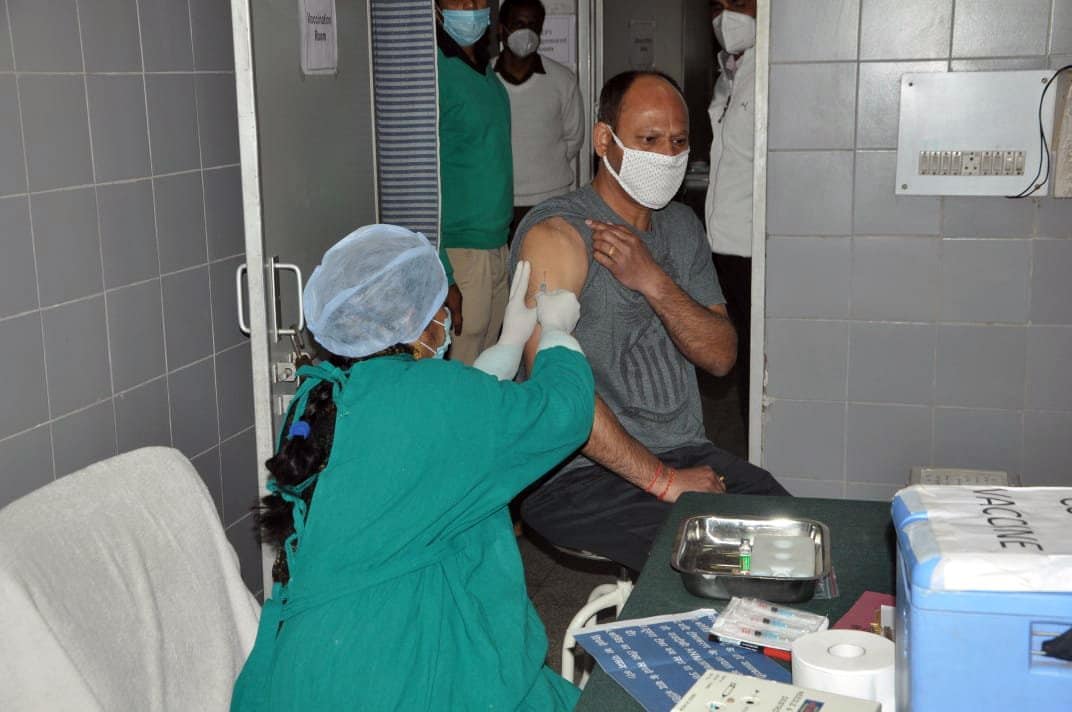Budgets, like miniskirts, are expected to hide more and reveal less. That is not helpful when one is trying to understand if the horrific Covid-19 experience, which so comprehensively destabilised our economic, social and psychological wellbeing, had finally been able to get the health sector the desperately needed hike in budgets and policy attention.
TV headlines suggesting a 137% increase in health budgets is sadly misleading. A closer look at the budget document indicates the health budget pegged at Rs 71,269 crore and an additional Rs 35,000 crores for vaccines. When health determinants like water, sanitation, and nutrition are added, the “health budget” swells to Rs 2.2 lakh crores and so the magical 137% increase. Such an increase is illusory. A sharp increase in water provisioning will certainly reduce diarrheal diseases, but the health sector desperately needs additional funding for building the battered primary health care and public health system: laboratories, surveillance and data management. It was the virtual nonexistence of critical public health infrastructure that led to our inability to contain Covid-19 infections. While as a rule I am averse to rating or making inter-country comparisons on outbreak managements, yet, if one must then, India’s performance needs to be pegged against China, Vietnam, Thailand, Sri lanka etc. and not the US or Europe that are vastly different from us.
In recognition of the huge infrastructure gaps in the public health infrastructure particularly in the backward states, the Prime Minister Atmanirbhar Swasth Bharat (PMASB) has been announced with an outlay of Rs. 64,180 crores for six years. Under this programme, primary, secondary and tertiary centres and public health institutions like the NCDC, etc. will be strengthened. It is targeted to support 28,806 wellness clinics in urban and rural areas, establish public health laboratories in all district headquarters and 3,382 blocks in backward states where health infrastructure is weak, establish critical care capacity in all district hospitals, set up health emergency operating centers and strengthen the public health units in all entry points and so on. While so, this money is not additional but will be carved out of the existing NHM budget. In other words, while the health budget has increased only by 10% from a RE of Rs 65,012 crores to Rs 71, 269 crores, the mention of the PMASB is suggestive of only a reprioritization of existing programmes. This is welcome but since the health budgets as such are low, a re- prioritization within the existing budget will mean a substitution. What activities will now be ‘sacrificed’ to fit these priorities needs to be seen when details roll out.
Secondly, it is unclear as to why Rs. 35,000 crore has been earmarked for vaccines. If the dose is being priced at Rs. 200 per dose when just 1 crore doses have been bought, surely the price must plummet when 27 crore doses are being bought. So either this amount is an overestimation or the intention is to provide free vaccine to more than the originally stated 30 crore population. A related question is what happens if it is found that the current vaccines offer only a half yearly or a yearly protection. Will the government be earmarking such huge amounts annually for one vaccine? Is it sustainable?
India is struggling and trying to emerge out of a traumatic experience. Covid-19 has cost the country dearly. I was hoping that atleast this experience would generate political commitment of the kind seen in UK after the shattering Second World War, when it announced Free universal health care for all under what is now known as NHS. It is disappointing that instead of making the real breakthrough and making an irreversible commitment to health by doubling health budgets in real terms, like what UPA I did under the NRHM in 2004 when in one go budget allocations were trebled, all that we now have is a perception game played out. That is unfortunate.
(K Sujatha Rao is a former Union Health Secretary. The views expressed are personal.)
 Dear Reader,
Dear Reader,
Business Standard has always strived hard to provide up-to-date information and commentary on developments that are of interest to you and have wider political and economic implications for the country and the world. Your encouragement and constant feedback on how to improve our offering have only made our resolve and commitment to these ideals stronger. Even during these difficult times arising out of Covid-19, we continue to remain committed to keeping you informed and updated with credible news, authoritative views and incisive commentary on topical issues of relevance.
We, however, have a request.
As we battle the economic impact of the pandemic, we need your support even more, so that we can continue to offer you more quality content. Our subscription model has seen an encouraging response from many of you, who have subscribed to our online content. More subscription to our online content can only help us achieve the goals of offering you even better and more relevant content. We believe in free, fair and credible journalism. Your support through more subscriptions can help us practise the journalism to which we are committed.
Support quality journalism and subscribe to Business Standard.
Digital Editor

RECOMMENDED FOR YOU